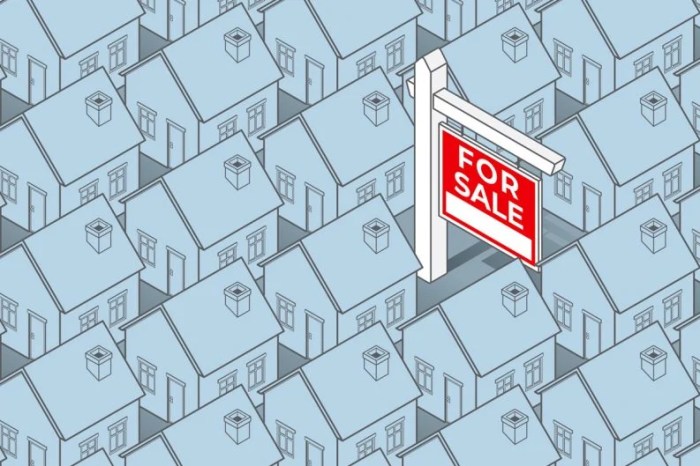
Buying a home with bad credit can feel like an uphill battle, but it’s more common than you might think. Many individuals find themselves in challenging financial situations that can affect their credit scores, yet this should not deter them from pursuing homeownership. Understanding how bad credit impacts mortgage options and exploring available alternatives is key to navigating this journey.
In this guide, we’ll delve into various strategies to improve your credit score, negotiate favorable terms with lenders, and the importance of saving for a larger down payment. Additionally, we’ll explore how real estate professionals can assist you in finding the right property despite financial hurdles.
Understanding Bad Credit in Home Buying

When it comes to buying a home, having bad credit can significantly influence your mortgage options. Understanding how bad credit impacts your home buying process is crucial. From limited financing options to higher interest rates, let’s delve deeper into the implications of poor credit scores in the home buying landscape.The impact of bad credit on mortgage options cannot be overstated.
Lenders typically view credit scores as a reflection of a borrower’s reliability and ability to repay loans. In general, a score below 580 is considered poor and can lead to denial of conventional mortgage applications. Additionally, even if a lender does approve a mortgage, it is likely to come with stringent terms and higher interest rates. This situation can make it challenging to find a suitable loan that won’t strain your finances over the long term.
Financing Alternatives for Poor Credit
While traditional mortgages may be out of reach, several alternative financing options can help those with poor credit secure a home. These options, although requiring careful consideration, can offer pathways to homeownership.The following alternatives are worth exploring for individuals with bad credit:
- FHA Loans: Backed by the Federal Housing Administration, these loans allow for lower credit scores with a minimum score of around 580 for a 3.5% down payment. This makes them a popular choice among first-time homebuyers.
- VA Loans: For veterans and active-duty military personnel, VA loans offer favorable terms and typically do not require a minimum credit score, although lenders may still have their own criteria.
- Subprime Mortgages: These loans are specifically designed for borrowers with poor credit. They often come with higher interest rates, so it’s important to weigh the long-term costs versus short-term benefits.
- Lease-to-Own Options: This arrangement allows potential buyers to rent a home with the option to purchase it later, giving them time to improve their credit before applying for a mortgage.
Understanding how credit scores are calculated can also inform your home buying strategy. Credit scores are primarily determined by five key factors, each contributing to the overall score:
Credit Score Calculation:
- Payment History (35%)
- Amounts Owed (30%)
- Length of Credit History (15%)
- New Credit (10%)
- Types of Credit Used (10%)
These factors emphasize the importance of making timely payments, managing debt levels, and maintaining a healthy mix of credit accounts. By focusing on these areas, individuals with bad credit can improve their scores over time, which will ultimately open up more favorable mortgage options in the future. Establishing a solid understanding of your credit and the associated financing alternatives can empower you to navigate the home buying process more effectively, even in the presence of bad credit.
Strategies for Buying a Home with Bad Credit

Buying a home with bad credit may seem like an uphill battle, but with the right strategies, it’s entirely possible to secure a mortgage and purchase your dream home. By focusing on improving your credit score, negotiating with lenders, and saving for a larger down payment, you can enhance your chances of approval and better loan terms. Here’s how you can navigate the home-buying process even when your credit isn’t in top shape.
Improving Credit Scores Before Applying for a Mortgage
One of the first steps in the home-buying journey for individuals with bad credit is to take proactive measures to improve their credit score. A higher credit score can lead to better loan terms and lower interest rates. Key strategies for enhancing your credit score include:
- Reviewing Your Credit Report: Obtain a free copy of your credit report from the major credit bureaus. Look for inaccuracies or errors that can negatively impact your score and dispute them promptly.
- Paying Off Outstanding Debts: Prioritize paying down credit card balances, as high utilization rates can harm your score. Aim to keep your credit utilization below 30%.
- Making Timely Payments: Ensure that all bills are paid on time, as payment history is a significant factor in your credit score calculation.
- Keeping Old Accounts Open: Length of credit history matters, so keep older accounts open even if you don’t use them frequently.
Negotiating with Lenders for Better Terms
When dealing with bad credit, negotiating with lenders can significantly affect the terms of your mortgage. Understanding how to approach lenders will help you advocate for better conditions:
- Presenting a Strong Case: Share your story with lenders, including your efforts to improve your credit and your stable income. Highlighting your financial stability can make you a more appealing candidate.
- Shopping Around: Don’t settle for the first offer. Different lenders have varying criteria and may be more flexible than others when it comes to bad credit.
- Consider a Co-Signer: If possible, enlist a co-signer with good credit. This can enhance your loan application and may lead to lower interest rates.
Importance of Saving for a Larger Down Payment
Saving for a larger down payment can significantly offset the negative impact of bad credit on your mortgage application. A larger down payment reduces the lender’s risk and may lead to more favorable terms:
- Lower Loan-to-Value Ratio: A larger down payment means a lower loan-to-value (LTV) ratio, making you a less risky borrower in the eyes of lenders.
- Potential for Lower Interest Rates: With more equity in your home from the start, lenders may offer you lower interest rates, resulting in significant savings over the life of your loan.
- Improved Negotiation Power: A substantial down payment can give you more leverage when negotiating the terms of your mortgage, making lenders more willing to work with you.
“A larger down payment can not only improve your chances of loan approval but can also lead to significant savings on interest over time.”
Working with Real Estate Professionals
Navigating the home buying process with bad credit can be challenging, but real estate professionals, particularly agents and investors, play a crucial role in making this journey smoother. These experts not only have access to valuable resources but also possess the knowledge to help you identify properties that align with your financial situation. Understanding their roles can significantly enhance your chances of successfully purchasing a home, even with credit hurdles.Real estate agents specializing in assisting buyers with bad credit can provide targeted support.
They are familiar with the specific challenges you face and can guide you through the entire process, from securing a mortgage to closing the deal. Their expertise allows them to find properties that may not only fit your budget but are also more likely to be affordable in the long run, given your financial constraints.
Role of Real Estate Agents in Finding Suitable Properties
When working with real estate agents, their ability to identify suitable properties for buyers with financial challenges is invaluable. They understand the market and can pinpoint homes that are both within your price range and have potential for appreciation. The following points elaborate on the key responsibilities of agents in this regard:
- Access to Listings: Agents have access to multiple listing services (MLS), which provide comprehensive information about available homes that meet your criteria.
- Negotiation Skills: Experienced agents can negotiate better deals, leveraging their understanding of market trends to benefit buyers with limited financial flexibility.
- Local Knowledge: Agents are often well-versed in the neighborhoods they serve, which means they can suggest areas that are more affordable yet have potential for growth.
- Network of Contacts: They have connections with lenders who may offer special programs for buyers with bad credit, making it easier to secure financing.
Benefits of Consulting with Real Estate Investors
Engaging with real estate investors can also be advantageous when dealing with bad credit. Investors often have a more flexible approach to financing and may offer alternative solutions that traditional lenders might not consider. The following points highlight why consulting with real estate investors can be beneficial:
- Creative Financing Options: Investors might provide rent-to-own options or seller financing, which can be more accessible for those with bad credit.
- Investment Insights: They can offer insights into the type of properties that provide good returns, which can be beneficial for first-time buyers looking for investment opportunities.
- Understanding of Market Trends: Investors are typically knowledgeable about current market conditions, helping you make informed decisions regarding your home purchase.
- Potential for Partnerships: If you’re looking to invest, teaming up with an investor can lead to shared financial responsibility and combined purchasing power.
Final Review
In conclusion, while buying a home with bad credit may come with its challenges, it is certainly not impossible. With the right knowledge and strategies in hand, you can enhance your creditworthiness, secure a mortgage, and ultimately make your dream of homeownership a reality. Remember, seeking professional guidance can make a significant difference as you embark on this journey.
FAQ Guide
Can I buy a home with a credit score under 580?
Yes, while it may be challenging, certain lenders offer loans to buyers with credit scores below 580, usually with higher interest rates.
What types of loans are available for bad credit homebuyers?
FHA loans, VA loans, and some alternative financing options may be available for those with bad credit.
How long does it take to improve my credit score?
Improving your credit score can take a few months to several years, depending on your financial habits and the steps you take.
Should I work with a real estate agent if I have bad credit?
Yes, a real estate agent can provide valuable advice, help find properties within your budget, and guide you through the buying process.
Is saving for a larger down payment beneficial for bad credit buyers?
Absolutely, a larger down payment can offset some credit issues and may lead to better loan terms.





